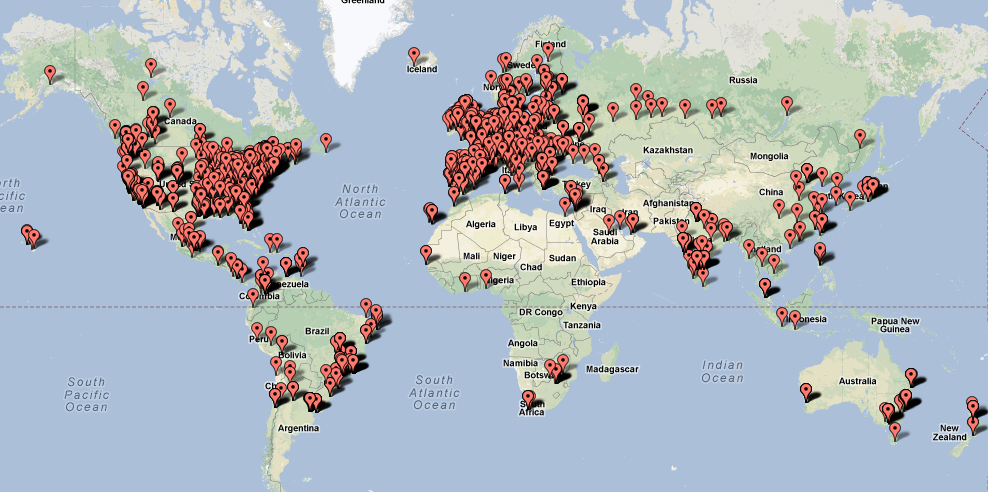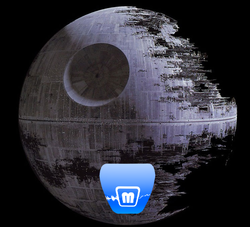
Rather than redraw a map of download locations, this time I thought it could be interesting to list some of the people (other than myself) using MELODIA for research.
To the best of my knowledge, MELODIA is being (or has been) used in at least:
2 European funded research projects:
- PHENICX EC project (contract no. 601166) http://phenicx.upf.edu
- CompMusic EC project (ERC-2010-AdG-267583) http://compmusic.upf.edu
5 doctoral theses (not including mine) at Universitat Pompeu Fabra, Barcelona, Spain (provisional titles):
- Gulati, S. Discovery and characterization of melodic motives in large audio music collections.
- Giraldo, S. Computational modeling of emotion, expression and inter- action in music performance.
- Bosch, J. J. Melodic and structural analysis of musical audio.
- Sentürk, S. Linking fragments of score and audio recordings.
- Koduri, G. K. Knowledge-based similarity measures for music.
and 7 Master's theses at Universitat Pompeu Fabra, Barcelona, Spain:
- Kroher, N. (2013). The flamenco cante: Automatic characterization of flamenco singing by analyzing audio recordings.
- Parra, H. (2013). Study of robust pitch estimation with de-reverberation techniques.
- Valero, J. (2013). Measuring similarity of automatically extracted melodic pitch contours for audio-based query by humming of poly- phonic music collections.
- Morelli, F. (2013). The bad and the good singer: Query analysis and reformulation for audio to audio query by humming.
- Chen, K. (2013). Characterization of pitch intonation in Beijing opera singing.
- Gulati, S. (2012). A tonic identification approach for Indian art music.
- Rocha, B. (2011). Genre classification based on predominant melodic pitch contours.
Pretty exciting!
On a related matter, I've been thinking of some improvements for version 2.0 based on the feedback I've received from people. But I'll leave the details for a future post.



 RSS Feed
RSS Feed
